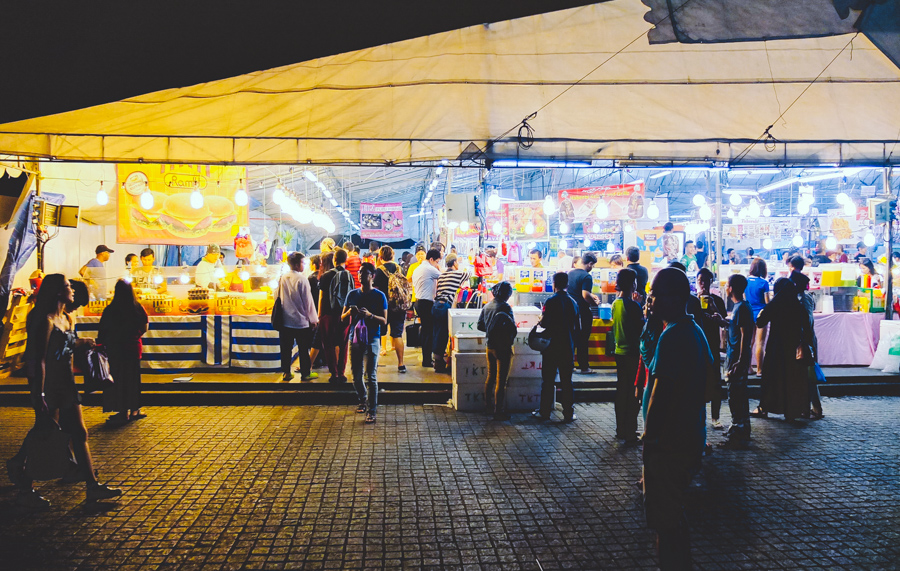Not unlike the markets of Venice’s Rialto, Morocco’s Jemaa El Fnaa, and the halls of Valhalla, our own pasar malams have been a cultural bastion of sorts, a populist sanctuary for the famished and a microcosm of all that is Singapore.
Though they’ve since been regarded as the forgotten forefathers of pop-up markets, I must intercede in this school of thought and say nay! For these nightly bazaars have held the original soul of bespoke gastronomic craftmanship, containing an immense array of well-documented nostalgic pleasures that has always been reliable savoury nightcaps.
Furthermore, pasar malams have always been held conveniently at piazzas and other places of power across this great nation, enticing you to come forth and sup after your daily commute.
Arguably, the most stalwart locale of these souks would be found in the northern province of Woodlands; an eternal champion of the pasar malam. Rarely does one not spot the bright yellow luminescence underneath eggshell-white tarpaulin at this communal juncture of northern civilisation.
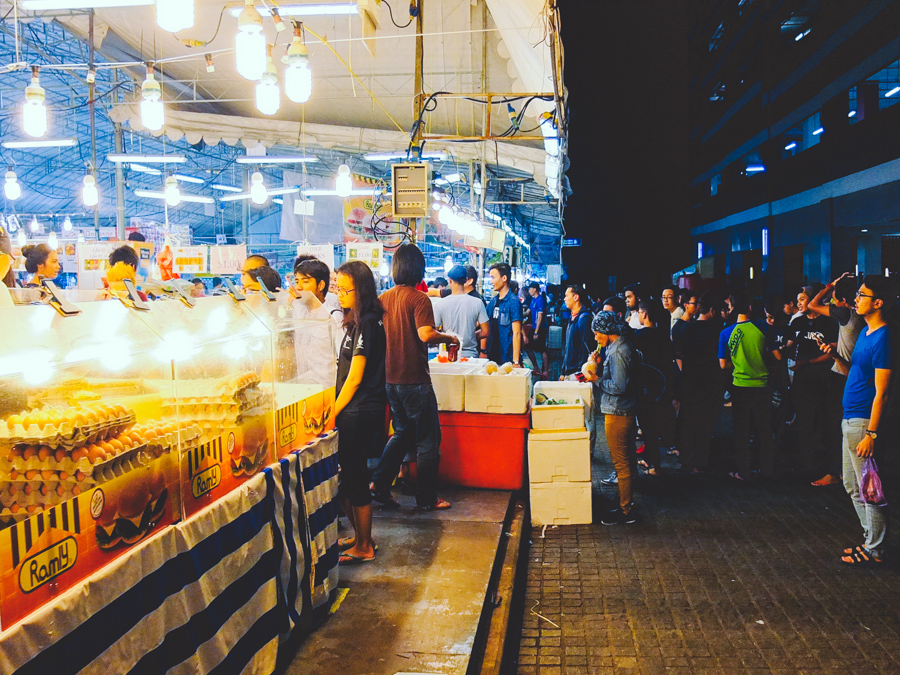
As per my usual expeditions into the heart of economic cordon bleu, three courses were selected to make my night at the night market a worthy trip — and oh how worthy it was! Though the intimate heat of the grill, fryers and rotisseries did cause me to soil my double-breasted coat with perspiration (and some grease despicably splashed onto my monk strap brogues), there really was nothing more refreshing than soaking up the milieu of robust smells and sounds of an archetypal pasar malam.
I stood in the middle of the humid piazza to take in the moment for a good minute or so before being knocked down by a bulky gentleman for blocking his path. Brushing soil off from my peaked lapels, I bid him good day and actually turned my back on him — an insult that would haunt him for weeks I assume. No sir, you do not trifle with Le Cheap Gourmand.
The evening banquet was inaugurated with a pasar malam classic: the Keropok Lekór Goreng ($2 for a packet). One would exclaim pish posh over this nibble of Terengganu origins, but nothing could be further from the truth.
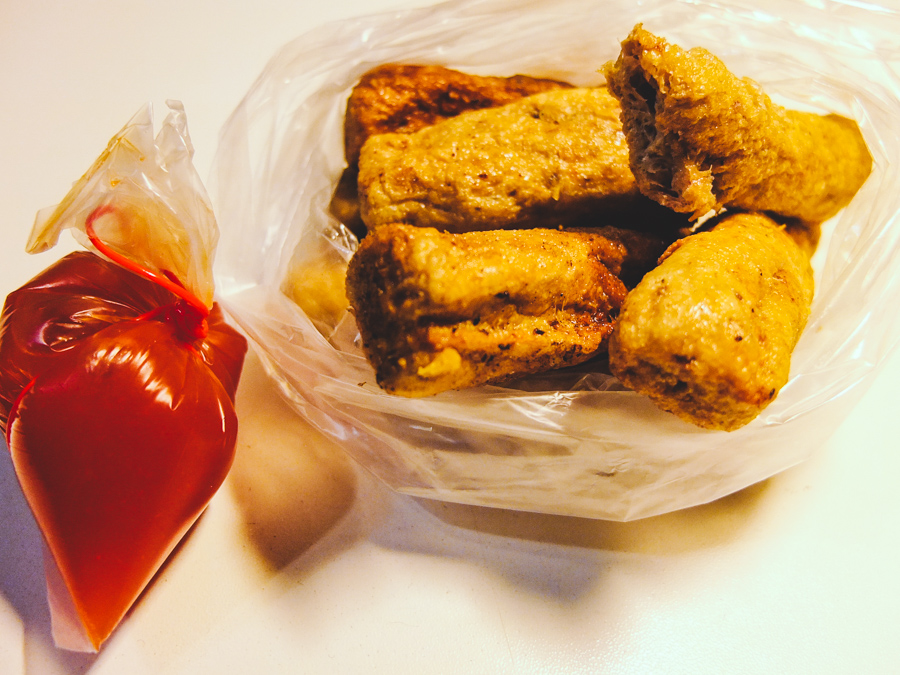
Crisp to the bite and chewy upon mastication, the fritter explodes with the salty relish of gourmet Norwegian salmon fish paste and starchy sago of the East Indies, all the more made more divine when these tubular appetisers are dipped in a thick veneer of homemade chili relish. A scrumptious start!
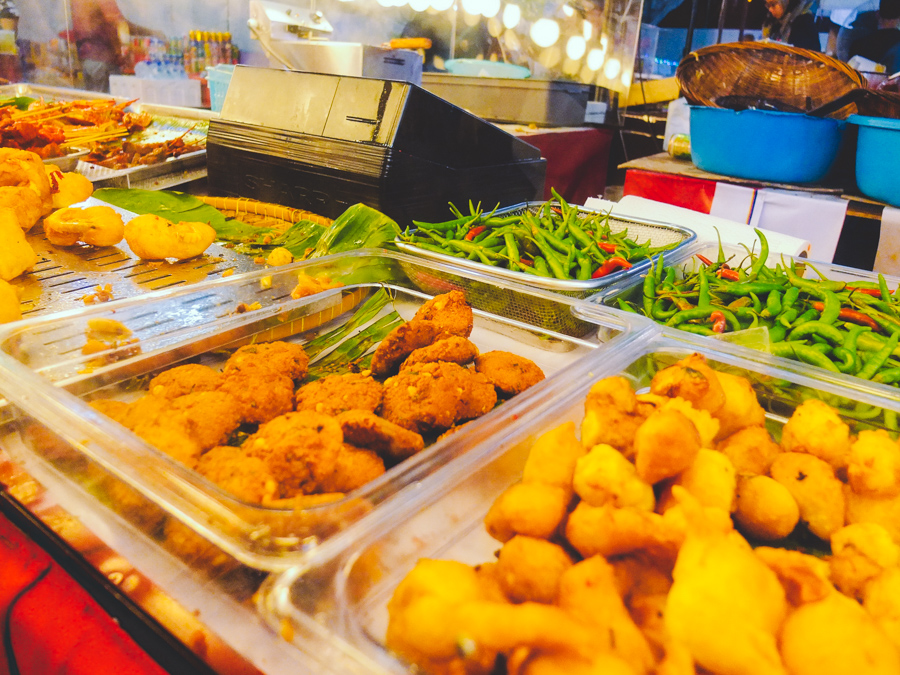
Another gently deep-fried starter came in the form of a South Indian favourite — the vadai ($2 for 3). This historic snack comes in different forms and modes, with some favouring the crumbly chickpea-based ambode, while others swear by the spinach-y keerai vadai. Carrying on the nautical theme for the appetisers, I picked out the seafood-infused isso vadai — surely an appropriate compliment to the lambent lekór.
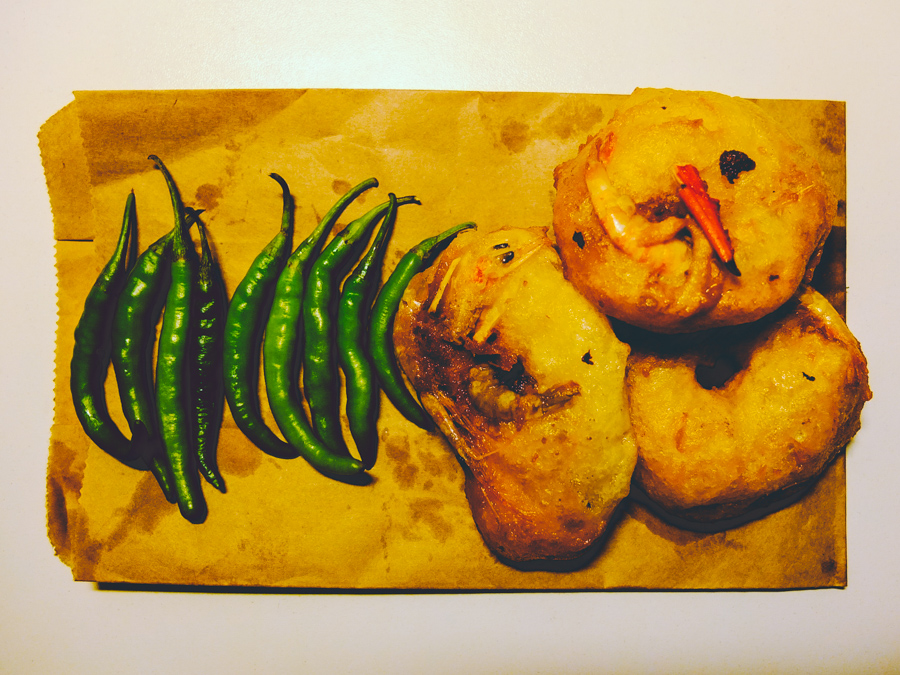
Expecting to taste the smoky essence of Sri Lanka, my teeth sank instead into a depressing muddle of dough, dough and more bland dough. It tasted so severely weak that I was sure that Annapoorna devi herself would descend from her throne and smite the bun from my hands, but even she couldn’t bear to be within proximity of this displeasing fare. Even the side of green chilli couldn’t save my blemished palate, and thus I set fire to the pieces of vadai to ward off any more insipid spirits.
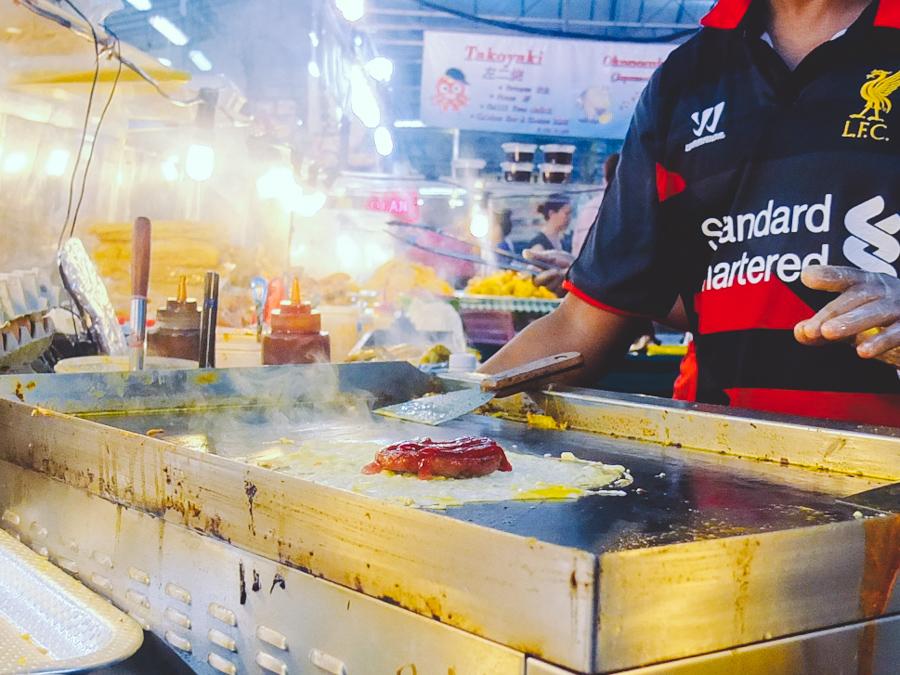
Thankfully, the next dish was a legendary paradigm of pasar malam gastronomy. Often spoken about in hushed, salivating tones, the ageless Ramly Burger ($3.50) has been an omnipresent guardian at any and every bazaars across both Singapore and Malaysia, gaining a cult-like following in its path to eminence.
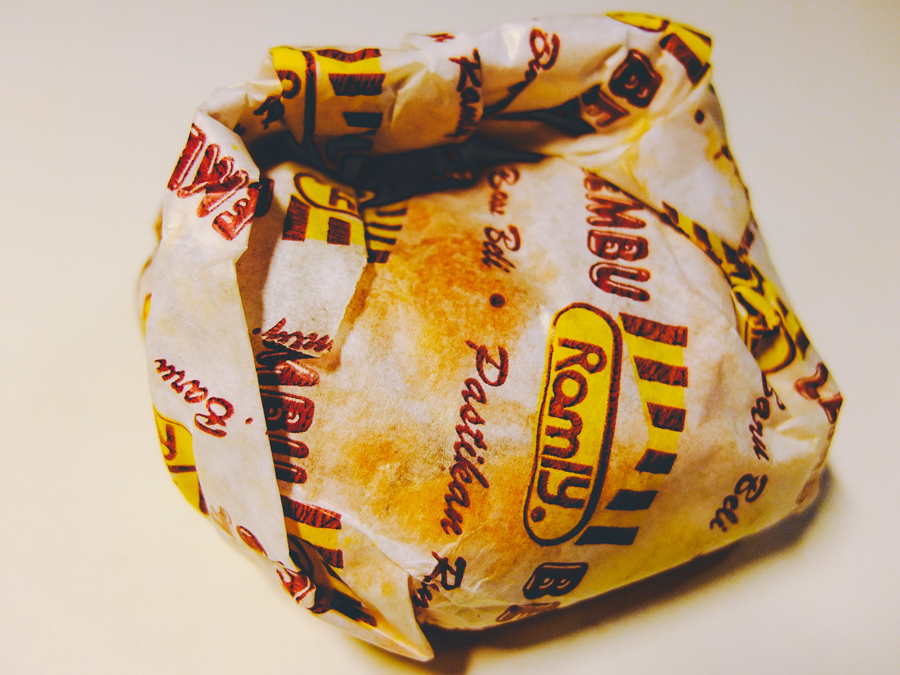
It has been a while since my last Ramly Burger experience, and intentionally so — the last time I came into contact with one left me in a hazy stupor for days. This time however, I was ready for its explosive torrent of taste.
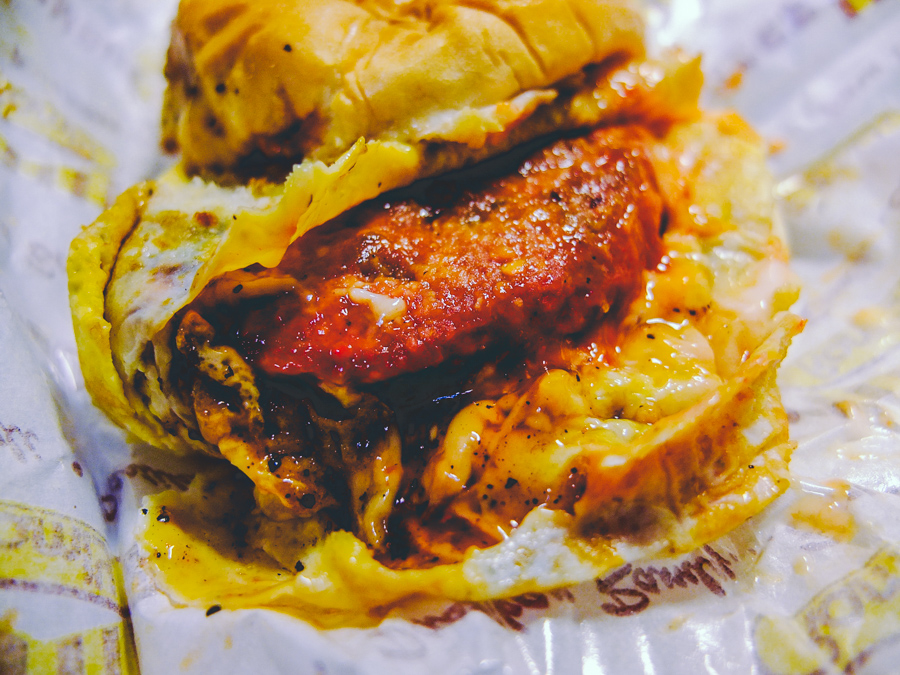
It surely was a testament to the lofty heights of burger engineering. Unrestrained from its coated paper wrapper, the medium-sized sandwich was packed with a behemoth-sized punch of textures and flavours, putting even Jucy Lucys, sloppers, and bøfsandwiches to tearful shame. The minced beef patty was aged and spiced to perfection, fitting snug in a jacket of moist omelette filled generously with its trademark exotic special sauce, which has been modularly perfected since 1979. Eschewing the usual crisp, roasted buns of the yokel fare, their artisan buns emerged as soggy as a wet dog on a rainy day, except this one was a lot more tastier.
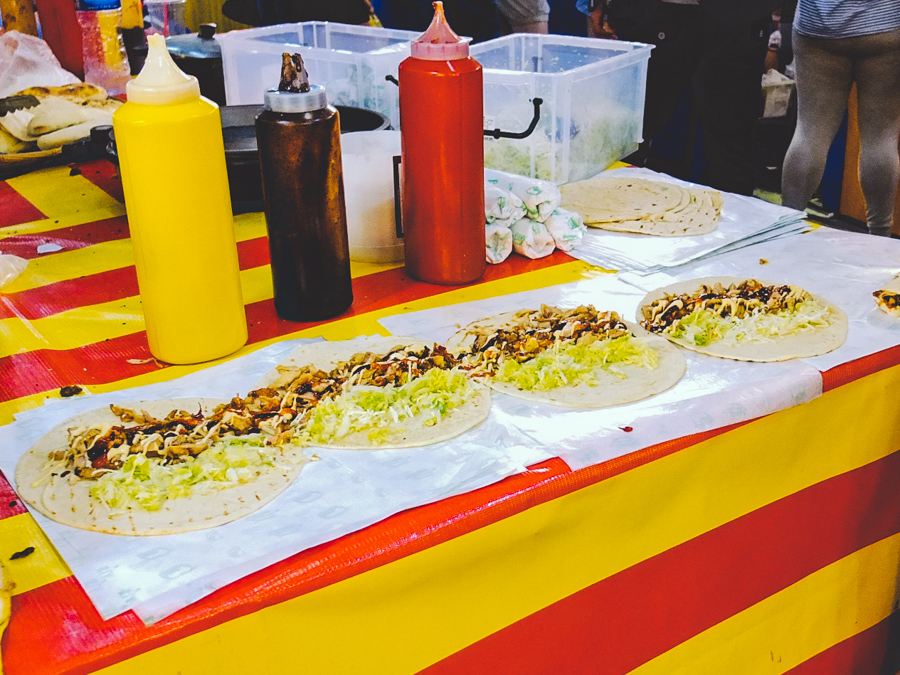
Continuing the jaunt into moist meat wrapped in bread, the chicken kebab ($3) was next on the main course. Laced similarly in that trademark triumvir of sauce typically used in pasar malam fare (Alexandre Viard’s mayonnaise, matured Worcestershire sauce and sweet chilli sauce) this dürüm leaned strongly towards the style of Turkish immigrants in Berlin, maintaining tender chunks of chicken cutlets serenely resting over crisp cabbage strips. The language of gratification was not lost in the local context, similarly humming with the secret language of new settlers. Wunderbar.
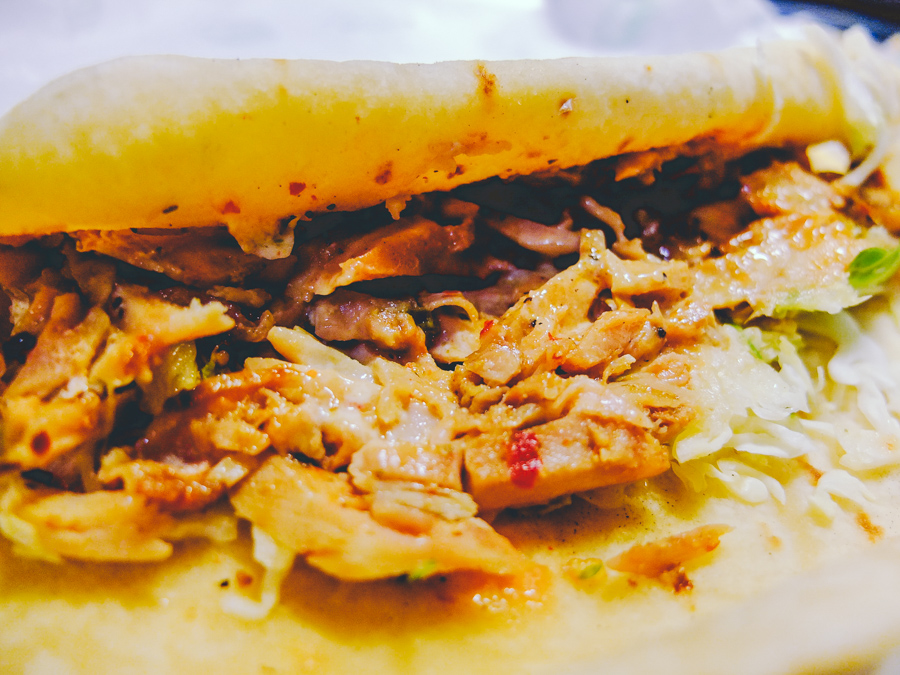
Of course, taking tastebuds through an international gustatory voyage would tire any gourmand out, and a dessert was in order. I picked up this peculiar little item from one of the many mysterious styrofoam boxes found at the pasar malam’s beverage bar, and an appropriate one too considering the platform of my musings.
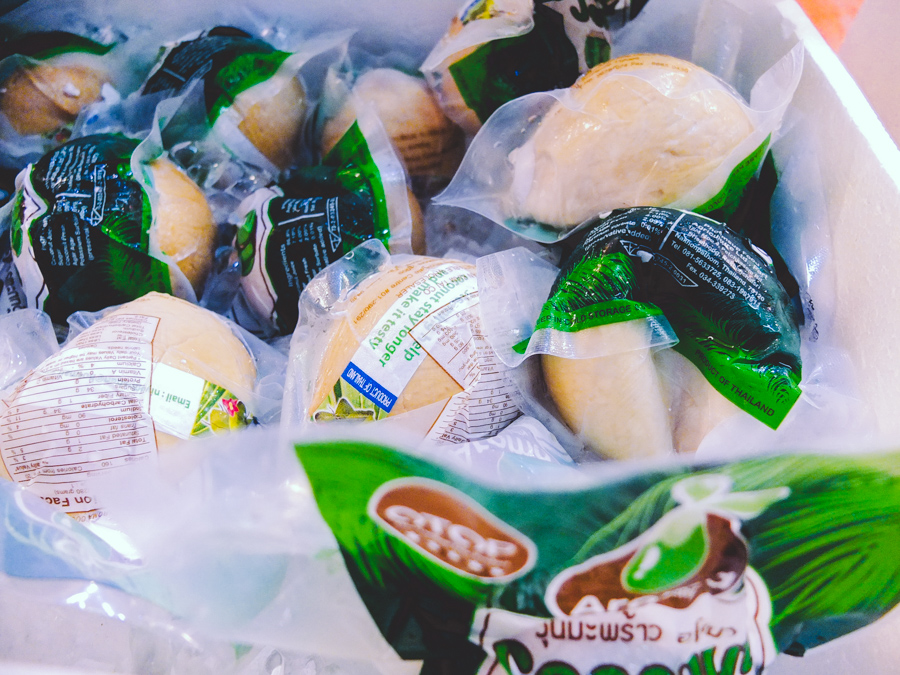
Arriving in a vacuum-sealed parcel, the Aroma Coconut Jelly ($3.50) presumably underwent the French method of sous-vide to seal in every portion of moist sweetness. The aesthetics of their packaging was top notch — the gracious minds behind this product even issued an advice on how to ensure coconuts stay testy!
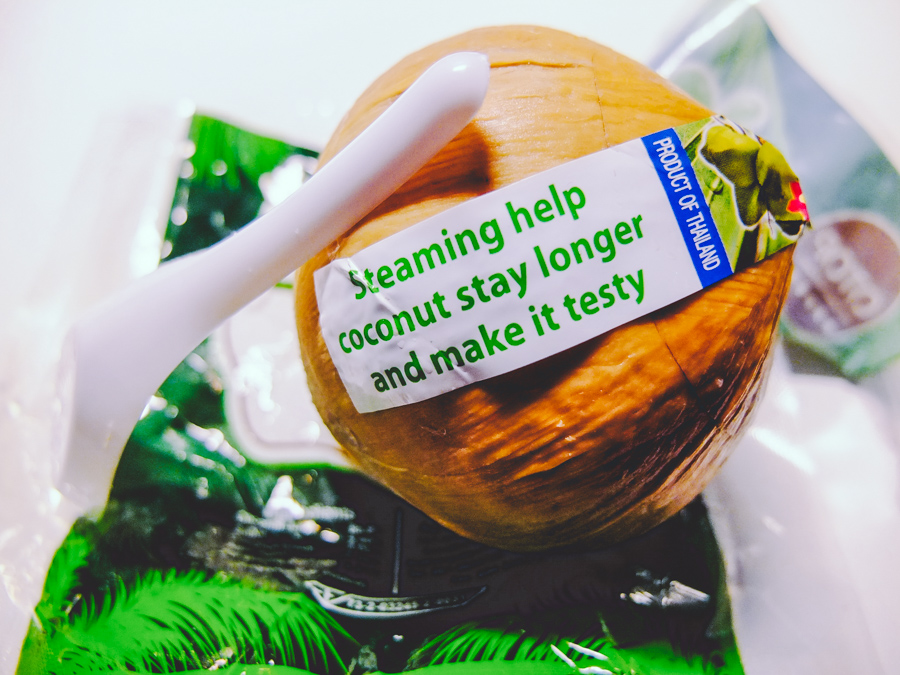
Inside the husk itself however was where it stored its sorcery. Instead of supping on cool water, the liquid had instead congealed into a phenomenally luscious jelly, laced with the succulent natural flesh of the coconut. Pure genius I must say, even in my years of academic work in molecular gastronomy.
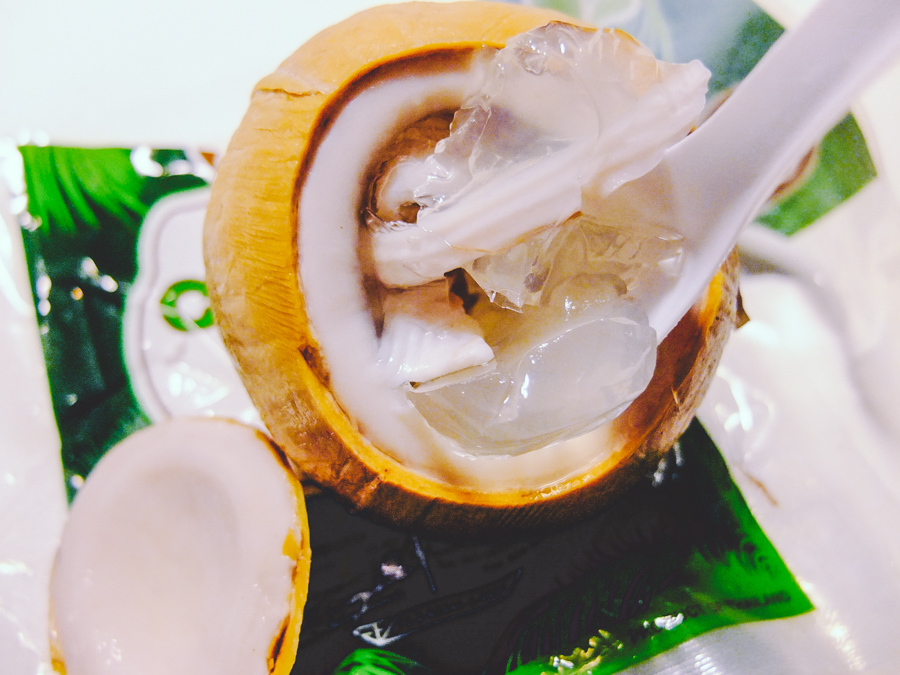
Though my meal was but a fraction of what the pasar malam had to offer, my long-simmering fascination with its culinary legacies still refuses to wane every single time one pops up in the district. Rain or shine, legal or illegal, the ubiquitous pasar malam is your eternal friend of the night, and will remain so for future generations, long after our bones wither into the ether.
Photos: Ilyas Sholihyn / Coconuts Singapore
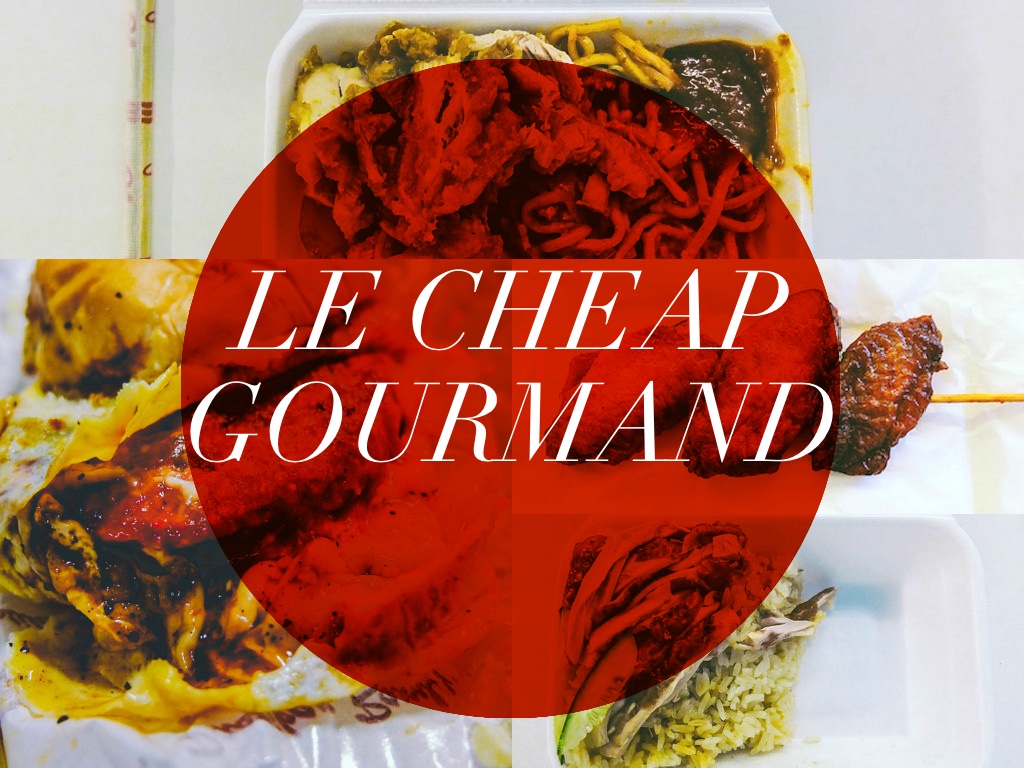
Read more Le Cheap Gourmand:
Ananas Café offers the absolute apex in Neo-Asian cuisine
24/7 hymns of groundbreaking delicacies at 7Eleven
NTUC Fairprice’s meat platter is the joie de vivre of protein sustenance
Done reading? Sit back, relax and watch Coconuts TV:
